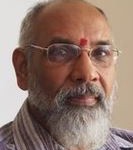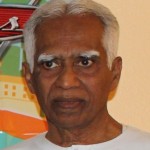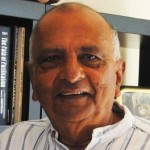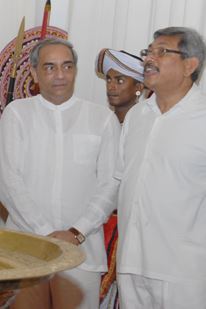A Brief Colonial History Of Ceylon(SriLanka)
Sri Lanka: One Island Two Nations
A Brief Colonial History Of Ceylon(SriLanka)
Sri Lanka: One Island Two Nations
(Full Story)
Search This Blog
Back to 500BC.
==========================
Thiranjala Weerasinghe sj.- One Island Two Nations
?????????????????????????????????????????????????Monday, September 30, 2013
The war in Sri Lanka is not over
By Shivam Vij
Published: September 29, 2013
The
writer is a journalist in Delhi whose work has appeared in The
Christian Science Monitor and The New York Times. He tweets @DilliDurAst
First Steps In Sri Lanka
By The Economic and Political Weekly -September 30, 2013
The Northern Provincial Council election in Sri Lanka, which the Tamil
National Alliance (TNA) won resoundingly with over 80% of the votes
polled, attracted an unusual level of national and international
interest, being the first Provincial Council election to be held in the
North since the Indian Army pulled out in 1990. Unresolved questions
about the war contributed to this interest in a major way. The election,
it was anticipated, would be an occasion where the people would deliver
their verdict, and they did so with a voter turnout of 70%. After years
of apathy, the public suddenly seemed to believe that an expression of
their protest would change things for the better.
The powers of the council, never spelt out clearly, have in practice
been whittled down over the years, yet even the token powers it retains
over land, and law and order are seen by Sinhala nationalists as a
bridge to separatism. The post-war reality, on the contrary, is that the
government has taken over large tracts of land, depriving Tamil
residents of their land and livelihoods. It has offered Sinhalese
families incentives to settle in the North on one-and-a-half-acre plots,
while a landless Tamil family is at best entitled to a quarter acre.
Behind the massive government expenditure on infrastructure and
Sinhalisation lies the neglect of war-affected Tamil civilians, maimed,
traumatised and broken families buried under the government’s claim that
it fought a war with zero civilian casualties, intimidation and
surveillance by the military, and militarisation of all aspects of life.
Read More
TNA FILLS NPC BONUS SEATS
Asmin contested the provincial council elections from the Mannar
District while Kamala had contested from the Mullaitivu District.
It has been reported that TNA leader R. Sampanthan was not present
during the discussion held today to appoint the two candidates.
It was proposed that Asmin will continue in eh seat until the Provincial
Council is dissolved while Kamala has been appointed for a period of
one year.
After one year is completed Kamala will be replaced by another TNA candidate and so forth.
Posted by
Thavam
Altered Images: Faked posters 'confuse voters'
27 September 2013
The country's main Tamil party won a sweeping victory to take control of
the semi-autonomous Northern Provincial Council but not - according to
reports in the region's media - without overcoming some dirty tricks
along the way. One of the Tamil National Alliance's (TNA) complaints
concerned posters of its chief ministerial candidate, CV Wigneswaran,
which appeared in the regional capital Jaffna, the Colombo Telegraph reports.
Apparently, they featured the wrong candidate number and would have
encouraged people to cross box seven, instead of casting their vote for
Wigneswaran by marking box 10.
The TNA secured 78% of the vote to
win 30 seats of the 38 seats. But reports suggest international
election monitors were unimpressed by the actions of the armed forces,
which were accused of attacking the home of a TNA candidate.
Commonwealth observers described the military as presenting "a
significant obstacle to a credible electoral process", according to the Times of India, while the Colombo Gazettereported that South Asian monitors accused the military of distributing campaign propaganda and putting up election posters.
On the morning of the vote, an entire print run of a fake version of the
main northern newspaper, Uthayan, was circulated. It said the TNA was
boycotting the election and that a prominent candidate had defected to
the government's party, when neither were true. The paper's managing
editor - a TNA MP - claimed supporters of a rival party had colluded
with military intelligence to print the fake, the Nation newspaper reported.
Lok Sabha Elections And Sri Lanka
Comfort Zone (37 years – 8 elections)
A broad survey of election results of the past will give some clues to
the immediate future. In the duration of 62 years from the first to the
present, there are two distinctive time zones. The first, comfort zone
and the second uncertain zone. In the first 8 elections from 1952 to
1984, Congress swept the polls, winning 7 out of 8 and obtaining a clear
majority for forming a government on its own strength. At 6 of the 7
elections, the majority ranged from 2/3 to 4/5.There was no party to
challenge the supremacy of Congress. In 1977 Congress lost the
elections, getting 34% of votes and 28% of seats. The Indian voter
registered lack of appetite for Indira Gandhi’s ‘iron rule’, the only
menu that could have nourished India best.
Uncertain Zone (25 years-7 elections)
In the second zone, out of 7 elections from 1989 to 2009, neither
Congress nor a non-Congress party ever got a clear majority. In this
period, the highest number of seats that Congress obtained was 244 out
of 545 in 1991 and the lowest was 114 in 1999. If this performance was
dismal, even more disappointing was voter endorsement. At five
consecutive elections from 1996 to 2009, Congress was unable to break
the barrier of 29% of the popular vote. It even came down to 25.8% in
1998 from the highest of 49% in1984. For the giant Congress it has been a
matter of continuing disquiet.
Vote seat correspondence has now
disappeared. The election of 1996 presents an incredible picture. The
Janata Dal alliance secured 192 seats. With only 0.2% total votes more
than the Congress, it got 52 more seats. The BJP alliance got 29 million
votes less than Congress but 47 seats more. Such were the disparities
at one election and they were not an exception.
Polls Chief powerless
 Former
Chief Elections Commissioner of India, N. Gopalaswami, who headed the
Mission of International Election Observers in the recently held
provincial elections said, Sri Lanka's Election Commissioner is
'powerless'.
Former
Chief Elections Commissioner of India, N. Gopalaswami, who headed the
Mission of International Election Observers in the recently held
provincial elections said, Sri Lanka's Election Commissioner is
'powerless'.
By Sulochana Ramiah Mohan-
| Monday, 30 Sep 2013 |
The report issued by the international monitors stated the negative
perception about the election could have been largely controlled or
eliminated, had the Commissioner of Election been vested with
overarching powers on every aspect of the election.
Gopalaswamy said in his report, unlike the Elections Commissioner of
India, who has the power to take decisions on all poll related
activities, Sri Lanka's Department of Elections functions just as a
Department conducting elections, while all the power is vested with the
government, which prevents the Commissioner from taking sufficient
actions against election law violators. The monitors were also of the
view the powers of the Commissioner of Elections should be appropriately
enhanced towards the objective of holding an election, which is not
only free and fair, but is also perceived to be so.
The group was impressed by the substantial turnout of the voters and the
Election Commissioner's spontaneous and instant decision to provide
transport at the Commission's expense to the Internally Displaced
Persons (IDPs), when the monitors brought the matter to his notice
during their visit to Jaffna, about the long distances the IDPs were
required to travel at a considerable expense, to cast their votes.
Gopalaswamy also said the conduct of a certain television channel was
one of the glaring incidents of misuse of freedom of the press and media
for partisan purposes. The Group he said was is not aware of any action
taken for stopping the telecast of misleading information by the TV
channel on the day of the poll.
The more blatant was the reported use of the trainee nurses, pupil
teachers, teachers, newly recruited graduates, Samurdhi workers, civil
defence services workers in campaigning, during and outside office
hours.
Gopalaswamy also noted the ballot paper was also somewhat complicated,
which could have led to a somewhat large percentage of rejected votes.
He said they also noted that the voting compartments at many places were
not placed in the best possible way so as to give maximum confidence
about the secrecy of their votes to the voters.
The group also said the presence of armed police inside polling stations and near voting compartments should have been avoided.
The police were either not responsive or showed slow response in general
to instances of violations of election law in the field, before and
during the poll day.
The group also suggested for the future of stronger IT based poll monitoring measures and a SMS based poll monitoring system.
Beyond Sri Lankan provincial elections
SEEMA SENGUPTA
Monday 30 September 2013From a five member election observer team led by former election commission chief N.
Sri Lanka And The Article 99 Of The UN Charter
Mr Moderator, co-panellists, friends, ladies and gentlemen.
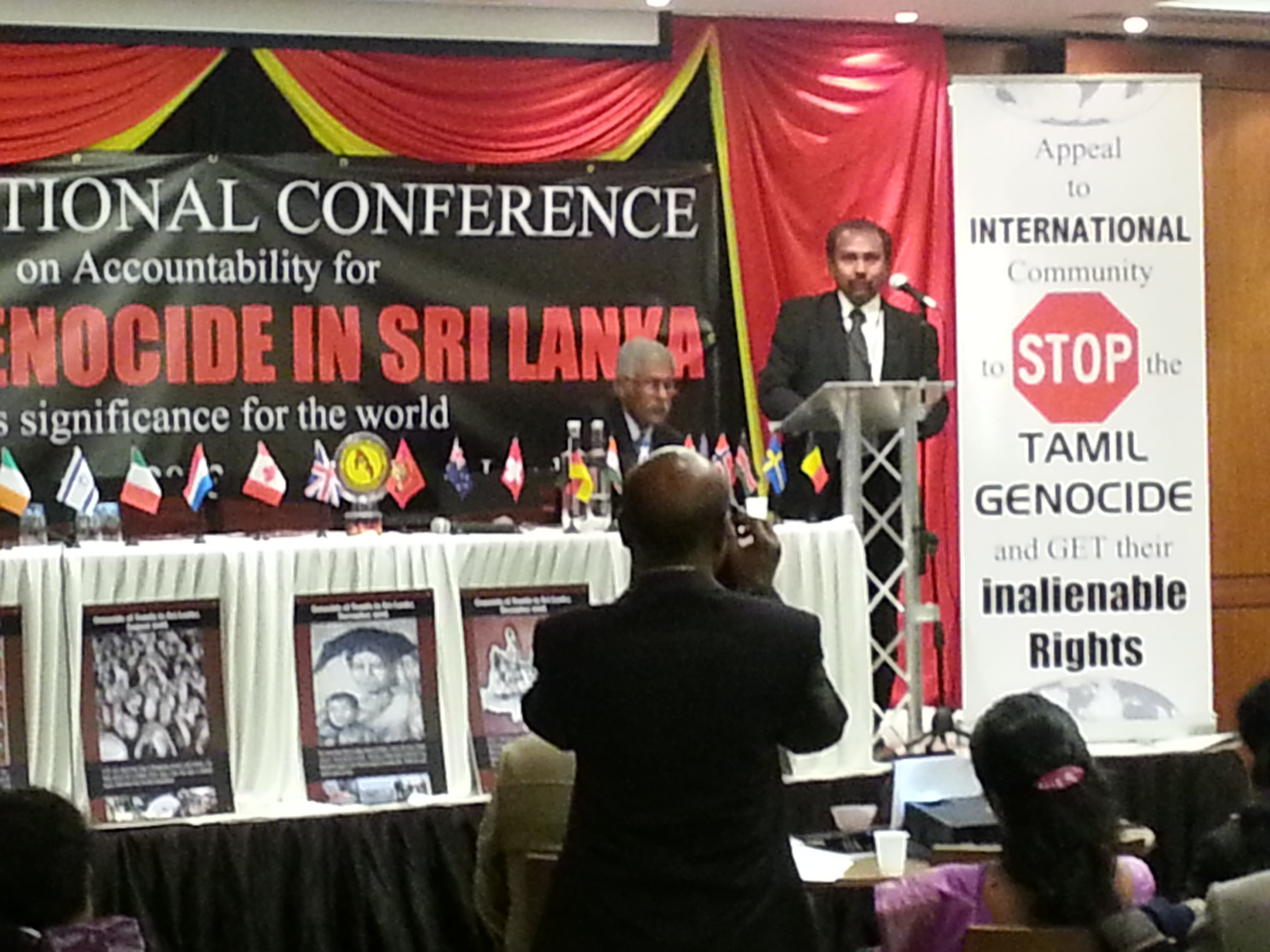 First of all, I would like to thank the organisers of this conference, the members of TGTE, for inviting me to speak.
First of all, I would like to thank the organisers of this conference, the members of TGTE, for inviting me to speak.
At the same time I would like to express my personal gratitude and appreciation to Rudra Annai (Mr V. Rudrakumar, PM of TGTE).
Ladies and gentlemen,
Soon after the Second World War,
fifty-one nations gathered in San Francisco in June 1945 to establish,
the United Nations – UN, an inter-government body, replacing the League
of Nations. All member states agreed that there should be special
provision in the UN Charter for the United Nations Secretary General –
UNSG who is accountable to no nation, but to the UN. He was given
authority to give early warnings regarding matters that were not on the
agenda of the UN Security Council – UNSG. The UNSG can exercise his
right through political judgement to consider any situation which may be
a threat to international peace and security.Read More
Muslim village seized for Sinhalicisation in Ki’n’niyaa, Trincomalee
[TamilNet, Sunday, 29 September 2013, 06:23 GMT]The entire Muslim population of around two thousand people were uprooted from their century old village in 1990 and fled to safety elsewhere leaving their lands and other properties.
The uprooted people were not allowed to resettle permanently in their lands thereafter.
But, huts were erected by a non-governmental organization.
In 2010, the Sri Lankan Police burned down these huts. The resettled people had left the village once again.
Now the occupying Sri Lanka Army and Police are not allowing uprooted people to resettle in the village.
The Sri Lankan military has also destroyed the mosque in the village.
TNA in need
 The
senior parliamentarian said, the NPC being new, it lacked the basic
infrastructure including a building and furniture for it to become
functional, claiming that the Centre should duly acknowledge the
political aspirations expressed through the recent election results.
The
senior parliamentarian said, the NPC being new, it lacked the basic
infrastructure including a building and furniture for it to become
functional, claiming that the Centre should duly acknowledge the
political aspirations expressed through the recent election results.
By Dilrukshi Handunnetti-
| Monday, 30 Sep 2013 |
A senior parliamentarian of the Tamil National Alliance (TNA) has urged
the Centre to urgently facilitate the setting up of the Northern
Provincial Council (NPC) by disbursing adequate funds to secure the
necessary infrastructure.
TNA Parliamentarian, Suresh Premachandran, had made a request to the government in this regard.
TNA Parliamentarian, Suresh Premachandran, had made a request to the government in this regard.
“It is the Centre’s responsibility to ensure that the first NPC is
officially set up at its earliest, and elected representatives are
facilitated to become functional,” Premachandran said, emphasizing that a
previous example of sharing power with the North had proved a
‘political disaster,’ which only made the Centre suspicious in the eyes
of the Tamil
people. “Before the Chief Minister-elect and his administration is
installed in office, the basic infrastructure needs to be in place.
There should be quick plans, funds and personnel,” he said, emphasizing
that the people of the North had waited well over half a century to see
the area where they form the majority, to be governed by elected Tamil
politicians.
Premachandran added that any constraints, financial or otherwise, should
not be allowed to delay the process of setting up this vital provincial
administration, established by the Tamil people of the North with an
overwhelming majority. The TNA secured 30 out of 38 seats at the 21
September polls, garnering 78.55 of the popular vote.
It is likely that the NPC’s inaugural session will be held at temporary
premises, either at a Pradeshiya Sabha building or a hotel.
The North-Eastern Provincial Council set up in 1988, collapsed two years
later owing largely to the lack of financial, political and logistical
support from the Centre. It functioned from Trincomalee, the capital of
the merged North-East Province.
On the eve of the provincial elections, Secretary General of the United
Nations, Ban Ki-moon, hailed the conducting of the Northern Provincial
polls as an important step in the process of reconciliation. The
establishment of the NPC and devolving power to the former warzone
through the institution has been a key recommendation of the Lessons
Learnt and Reconciliation Commission (LLRC).
Posted by
Thavam
Political Interpretation Of PC Elections
By Shyamon Jayasinghe -September 30, 2013 |
Sri Lanka’s famed ‘political analyst,’ Dr Dayan Jayatilleka, has given the following assessment:
“The biggest losers are the UNP and its leader, Ranil Wickremesinghe,
as well as the JVP. In both cases, the issue is the leadership. Neither
party has a personality as a national leader, who is capable of
retaining, let alone attracting, votes.
The matter is more serious with the UNP because it is the main
democratic alternative. The UNP used to be the largest single party in
the country. Even when it lost power in 1994 after 17 years in power,
and its candidate was the newly widowed Mrs Srima Dissanayake, who faced
a formidable opponent in Mrs Chandrika Bandaranaike Kumaratunga,
the UNP succeeded in scoring 43% of the voter base. Today, after 19
years of UPFA rule, the UNP can score only in the mid 20% range. What
used to be the base vote of the UNP, namely 40%, is now the size of the
gap between the UNP and the government!
There are around one and a half times as many ex-UNPers in the government as those remaining with the UNP in the opposition.
If the UNP were to face a Presidential Election with its present
leadership, it will score even less than the 26% average it scored in
the two provinces in this election.”
Dayan ends up proposing Karu and Sajith to replace RW. Read More

 Senior
members of the Mahinda Rajapaksa government are currently discussing
the failure of the External Affairs Ministry to make proper
representations at the UN Human Rights Council (UNHRC) sessions in
Geneva.
Senior
members of the Mahinda Rajapaksa government are currently discussing
the failure of the External Affairs Ministry to make proper
representations at the UN Human Rights Council (UNHRC) sessions in
Geneva.
Lack of representation at UNHRC, Ministry officials accompany MR
- Monday, 30 September 2013

Government ministers say that Sri Lanka did not have a strong delegation
at the UNHRC to counter the various allegations levelled against the
country.
UN High Commissioner for Human Rights, Navi Pillay also submitted an oral representation to the Council on Sri Lanka.
Interestingly, the entire External Affairs Ministry high command the Minister to the officials handling UN affairs was in New York last week with President Mahinda Rajapaksa.
Interestingly, the entire External Affairs Ministry high command the Minister to the officials handling UN affairs was in New York last week with President Mahinda Rajapaksa.
As a result, no senior official had been assigned to Geneva where the UNHRC was in session.
According to senior Ministry officials, UN affairs in Geneva must be
managed from New York and calling for strong representation at the New
York mission.
They have said that New York is key to safeguarding Sri Lanka’s interests.
Posted by
Thavam
TNA’s clever move
Editorial-September 29, 2013
The TNA has, in fact, made a virtue of necessity. It will be a comedown
for Chief Minister Wigneswaran to be sworn in before Northern Governor
Maj. Gen. (retd.) G. A. Chandrasiri the TNA has gone all out to get rid
of. Hence its effort to bypass him! The President is expected to make
known his response shortly. It will be interesting to see whether the
President accepts the invitation and goes all the way to Jaffna to swear
in the new Chief Minister and others on the TNA’s terms.
Politically speaking, if he does so, it will be just swings and
roundabouts for him. Will he turn down the TNA’s invitation so that it
will have to bite the bullet and have Wigneswaran sworn in before its
bete noire, Governor Chandrasiri or will he invite the TNA councillors
to Colombo to impress on them that he is the boss?
The TNA threw in its lot with former Army Commander Gen. (retd.) Sarath
Fonseka when he ran for President. It went at full pelt in an abortive
bid to enable him to defeat President Rajapaksa, a civilian. It was part
of the Opposition coalition which argued that the US had elected Dwight
D. Eisenhower, a five-star general turned politician, President and,
therefore, Gen. Fonseka’s military background was no disqualification
for him to lead the country. They also produced a list of several
ex-service personnel serving as public officials at that time including
Secretary of Defence Gotabhaya Rajapaksa, in support of their argument.
Had the TNA as well as its allies succeeded in their endeavour in 2010
and Gen. Fonseka won, its chief minister would have had to be sworn in
before a former army chief turned President! How could it justify its
campaign to remove the Northern Governor on the grounds that he is a
former Jaffna security forces commander?
The government has been equally hypocritical; its anti-SF campaign was
premised on the much-publicised claim that ex-military personnel were
not fit for political office, but it has no qualms about appointing them
Governors!
Politicians and sportsmen
Transport Minister Kumara Welgama is reported to have lamented that
defeated politicians never so much as look at winners after electoral
contests unlike sportsmen who concede defeat graciously and shake hands
with their competitors. Yes, if politicians come forward to contest
elections to serve the public as they claim, there is no reason why they
couldn’t respect popular verdicts and bow out.
But, by no stretch of the imagination could anyone expect politicians to
exude sportsmanship—fairness, respect for one’s opponent and
graciousness in winning or losing—because politics, as Churchill has
said, is an earnest business and not a game. It was Will Rogers, famous
for his not-so-lambent wit, who once remarked that politics had become
so expensive that it cost a lot of money even to be defeated.
When a greedy politician loses an election and his investment goes down
the gurgler with his dream of recovering it with compound interest, as
it were, being dashed, it is only natural that he becomes too resentful
to be gracious in defeat. Bu
CJ-43 objects to Bribery Commission notice
Counsel Nalin Ladduwahetty PC appearing on behalf of Dr. Bandaranayake said the prosecution could not serve the notice on a suspect before serving him or her with charges.
He said as no charges signed by Magistrate Gihan Pilapitiya was served on her she was not an accused or named as an accused and as such notice could not be served on her.
Counsel said it was a mistake on the part of the prosecution to have failed to annex to the notice the copy or copies of the documents intended to be used by the prosecution in the trial.
He requested Court to direct the prosecution to provide copies of any reports or other documents, computers and computer data which the prosecution intends to use as evidence against his client.
The counsel said it was wrong to serve notice before reading out the charges and it was immature and had no force in law.
He said notice should have been served only after the charges were read out within a period of 45 days and thereafter the defence should raise any objections 15 days prior to the trial.
Senior State Counsel Dilan Ratnayake said the Bribery Commission would provide the copies of the documents to the defence and was prepared to read out the charges to rectify the mistake.
Counsel Ladduwahetty said this was not the usual practice in courts. He said the motion was filed by him to enlighten court on the mistake made by the prosecution. However if the prosecution was trying to rectify it by that manner what would the world think about this case. He said it was like punishing a suspect for highlighting a mistake.
Magistrate Pilapitiya fixed further inquiry for November 14 and asked the defence to file their objections if any on that date and the court would consider what other steps need to be taken. (T. Farook Thajudeen) (Pix by Pradeep Dilrukshana)
No Mercy For Shanty Dwellers Challenging UDA From De Facto CJ
Making policy statements from the Bench in open court in support of the
Gotabaya Rajapaksa led Urban Development Authority, Sri Lanka’s de facto
Chief Justice yesterday said no one should obstruct ongoing development
programmes in Colombo, and denounced shanties and low income
neighbourhoods as breeding grounds for vice.
Chief Justice Mohan Pieris said
it was the responsibility of all stakeholders is to extend their
support for the Governments programme to create a better living standard
for low income earners in the city of Colombo, state media broadcaster
Rupavahini said yesterday.
Pieris made these comments in open court when a petition filed against
UDA with regard to the removal of several shanties in the slave island
area was taken up for hearing at Supreme Court yesterday, according to
the Rupavahini report.
“State Counsel told court measures would be taken to provide new houses
to families who were evacuated from the area,” the State broadcaster
said.
It said that Mohan Pieris had praised the initiative and said that low
income earners in the city of Colombo resort to various vices because
they have no proper housing facilities. Illegal acts such as narcotic
rackets are evident in this environment, he said. Pieris pointed out
that such activities could be prevented by providing facilities to these
people to lead a better lifestyle, Rupavahini said in its nightly news
broadcast.
Pieris added that everyone should refrain from obstructing the relevant programme.
Mohan Pieris was formerly an advisor to the Ministry of Defence and also
served on two Defence Ministry owned and operated companies, Lanka
Logistics and Rakna Lanka. The Chief Justice who was appointed following
the flawed impeachment of Chief Justice Shirani Bandaranayake is believed to have been the choice of the Secretary to the Ministry of Defence Gotabaya Rajapaksa.
Since assuming office in January Pieris has made several highly
political and partisan statements from the bench in open court, making
it plain that victims of state excesses with regard to land acquisition,
eviction and even death in state custody would not be eligible for
redress under Pieris’ reign.
New Education Policies And Proposals – A Review
By Sujata Gamage -October 1, 2013
The NEPP document would not have seen the light of day if not for the
efforts by a group of volunteers who worked with Dr. Dr. G.B.
Gunawardena, the Chairman of the Committee to Draft a New Act, to
complete the document. The Gunawardena committee ran out of money midway
and the work of the committee ground to a halt. Volunteers led by
Upali Chandrasiri, a civil society activist, worked day and night with
Dr. Gunawardena, even spending money out of pocket, to complete the
document.
The first and last comprehensive piece of legislation on education in
Sri Lanka was enacted as far back as 1939. Since then several acts were
passed for specific purposes such the take-over of schools (1960 and
61), Public Examinations (1968), Pirivena Education (1979), National
Institute of Education (1981), Colleges of Education (1986), National
Education Commission (1991) and School Development Boards (1993). To
date, the education system has essentially been governed by these Acts
and a system of circulars. It is opportune that the government has taken
the initiative to update provisions of those acts and consolidate
miscellaneous circulars.
The Al Jazeera interview with Mahinda Rajapaksa: Calling the bluff
- - on 09/29/2013
Posted by
Thavam
Subscribe to:
Posts (Atom)

